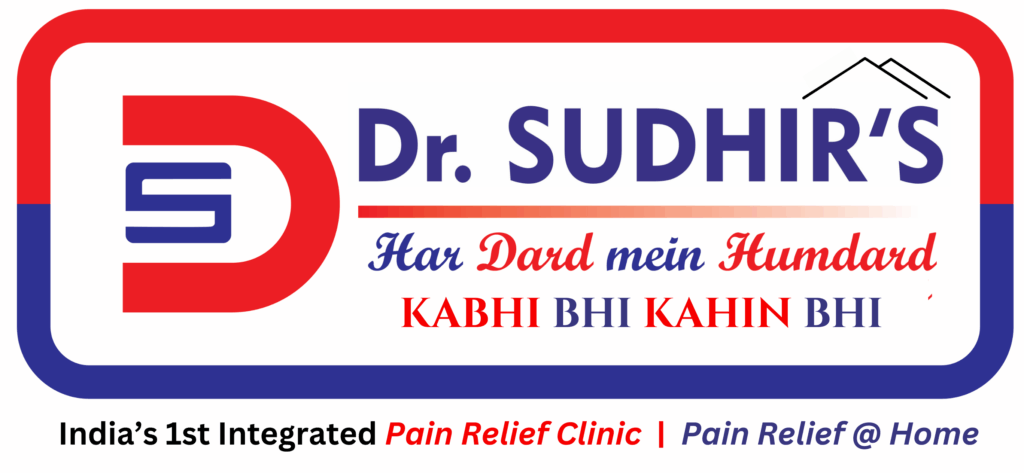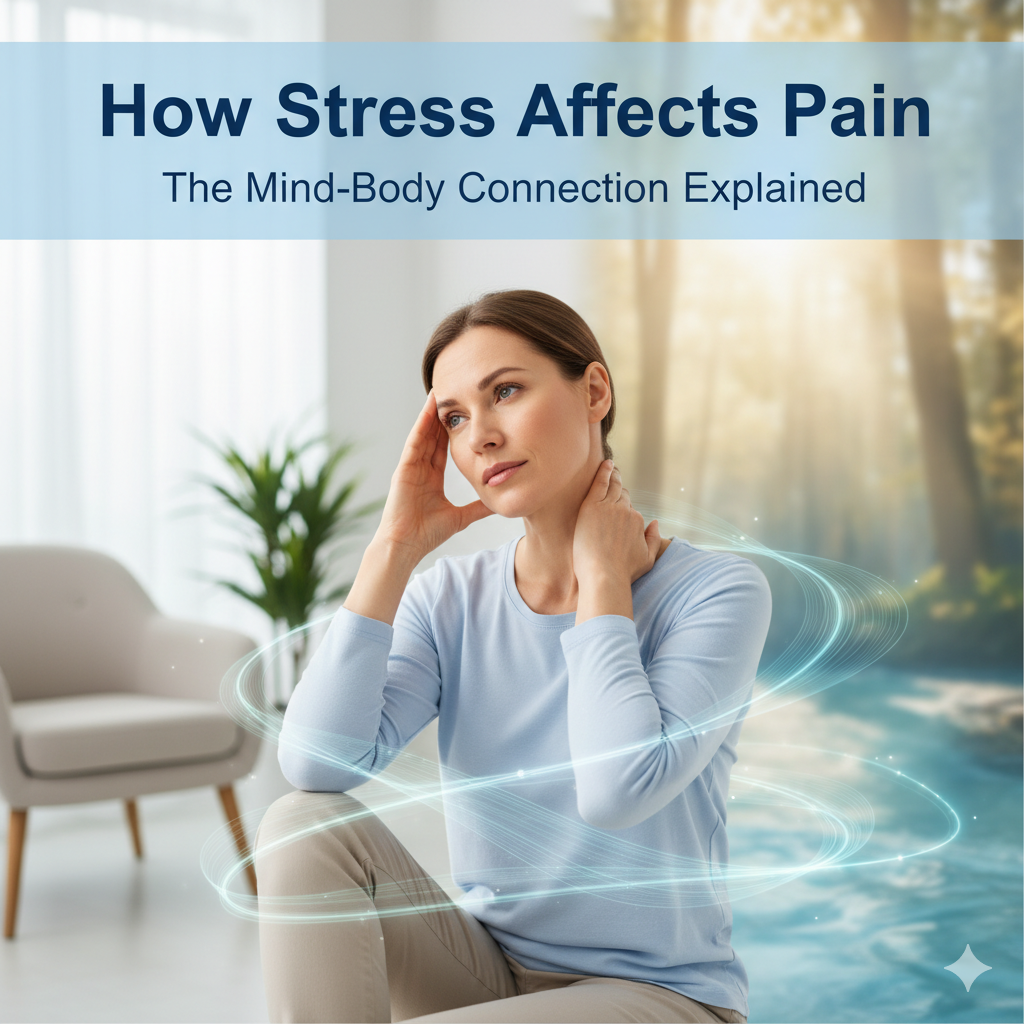Have you ever noticed your pain getting worse during stressful times? Whether it’s neck stiffness, back pain, or headaches — stress doesn’t just affect your mood; it directly impacts how your body feels.
At Dr. Sudhir’s Pain Relief Clinic, we often see patients whose pain intensifies when they’re anxious or emotionally overwhelmed. Understanding this mind-body connection is the first step toward real and lasting relief.
The Science Behind the Mind-Body Connection
When you experience stress, your body goes into a “fight or flight” mode — releasing stress hormones like cortisol and adrenaline. In small doses, this is helpful. But when stress becomes chronic, it disrupts the body’s normal healing process and increases inflammation.
This inflammation sensitizes your nervous system, making even minor discomfort feel more painful. Over time, the brain and body form a feedback loop — stress increases pain, and pain increases stress.
Common Pain Conditions Linked to Stress
Stress doesn’t cause pain out of nowhere, but it can worsen existing conditions or trigger new symptoms. Some of the most common include:
-
Back and Neck Pain: Stress causes muscles to tighten, leading to stiffness and tension headaches.
-
Joint Pain: Chronic stress increases inflammation in joints, worsening arthritis or stiffness.
-
Migraine and Tension Headaches: Emotional strain and anxiety are common triggers.
-
Stomach and Digestive Pain: Stress can upset the gut-brain balance, causing cramps and discomfort.
-
Widespread Body Pain (Fibromyalgia-like symptoms): Long-term stress can heighten pain perception throughout the body.
How to Manage Pain Caused by Stress
1. Relaxation and Breathing Exercises
Deep breathing, meditation, and yoga calm the nervous system and help reduce pain intensity. Even 10 minutes daily can make a difference.
2. Stay Physically Active
Gentle exercise such as walking, stretching, or swimming helps reduce stress hormones and improves blood flow to stiff muscles.
3. Prioritize Sleep
Poor sleep amplifies both stress and pain. Maintain a consistent bedtime routine and avoid screens before sleeping.
4. Maintain a Balanced Diet
Foods rich in Omega-3 fatty acids, magnesium, and antioxidants help control inflammation and support overall health.
5. Stay Connected
Talking to friends, family, or a therapist provides emotional support, which can reduce the feeling of isolation that often comes with chronic pain.
Professional Help Makes a Difference
If your pain persists despite relaxation or exercise, it’s important to consult a specialist. At Dr. Sudhir’s Pain Relief Clinic, we address both physical and emotional aspects of pain through:
-
Personalized pain management plans
-
Targeted neuro and physiotherapy treatments
-
Lifestyle correction and stress-relief techniques
Our goal is to help patients not only recover physically but also regain emotional balance — because true healing involves both body and mind.
Final Thoughts
Pain and stress are deeply connected, but the good news is: both can be managed effectively with the right approach. By taking care of your mental well-being and seeking timely treatment, you can break the cycle of stress and pain — and restore control over your life.
If you’re experiencing stress-related pain, contact Dr. Sudhir’s Pain Relief Clinic today. Let’s help you move freely, think clearly, and live comfortably again.
Call our specialists at +91 91636 95790.







